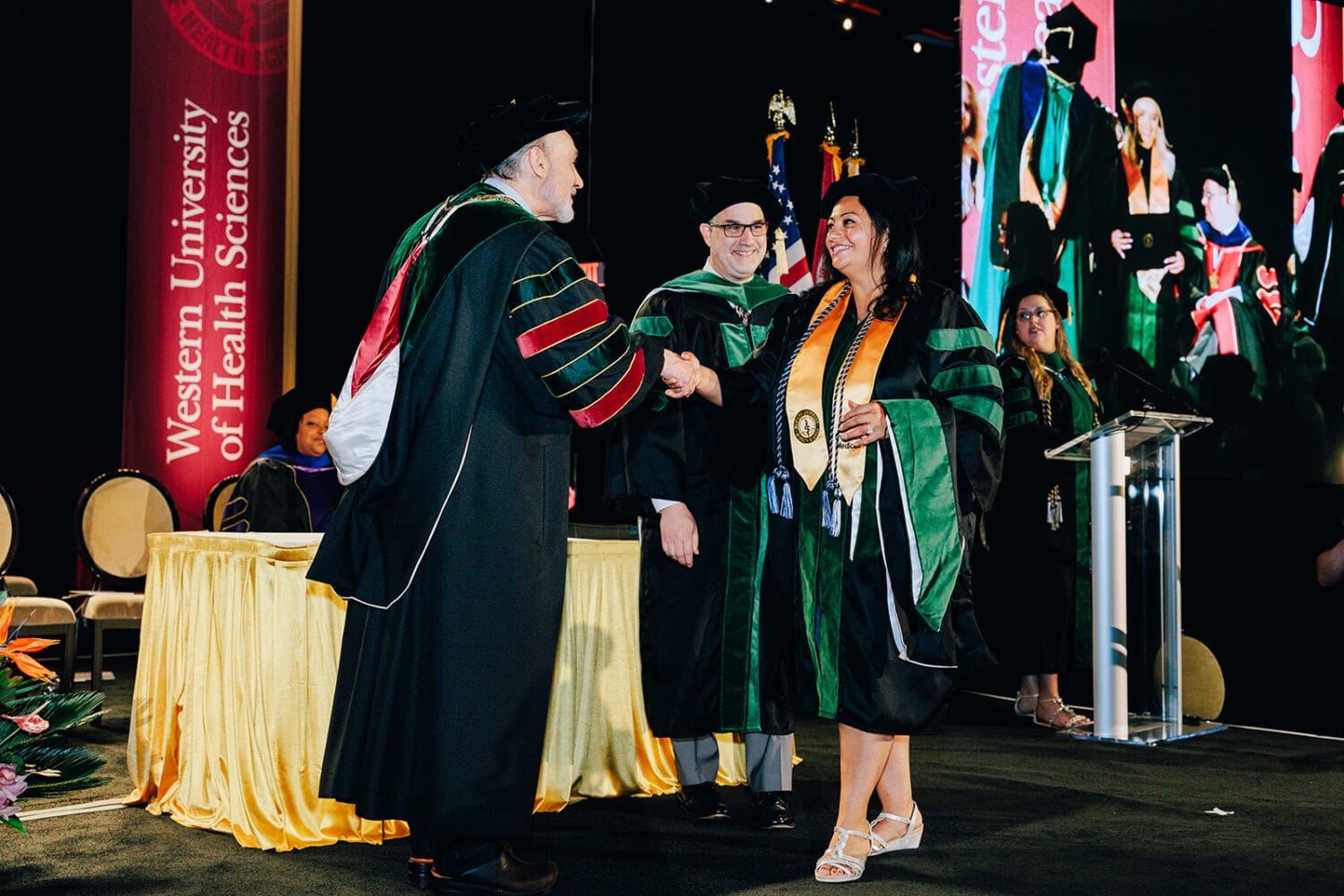WesternU Podiatry Dean Honored for Wound Care Leadership
College of Podiatric Medicine Founding Dean Lawrence Harkless, DPM, will receive the Annual John Boswick Memorial Award and Lectureship at the 23rd Annual Symposium on Advanced Wound Care and Wound Healing Society Meeting in Orlando, Fla. on April 17-20, 2010.
“The award winners in the past have been giants in the field,” said Robert S. Kirsner, MD, PhD, chairman for the SAWC Symposium. “This year with the naming of Larry Harkless is no different. He’s been the leader of podiatric medicine and wound care in the United States.”
Harkless built a tremendous podiatric medical residency training program at the University of Texas Health Science Center at San Antonio, and is now the founding dean of the College of Podiatric Medicine at Western University of Health Sciences. He helped develop the University of Texas diabetic foot wound classification system, providing the clinical pathway for how the diabetic foot is treated.
“He has mentored the next generation of great leaders in wound care and in podiatric medicine,” Kirsner said. “He is really a great standard bearer and godfather of podiatric medicine in the U.S.”
The John Boswick Memorial Award celebrates the memory of the late John Boswick, MD, a burn surgeon who contributed immensely to the field of wound care. The vision for the award was outlined as “global selfless leadership in improving scientific understanding or care of persons with wounds.”
This lifetime achievement award is the highest honor given by the Association for the Advancement of Wound Care (AAWC) and the Symposium on Advanced Wound Care (SAWC).
SAWC is the largest wound healing meeting in the U.S. and serves as the annual meeting of the two leading clinical organizations for wound care, Kirsner said. About 4,000 people are expected to attend.
The John Boswick Memorial Award is considered to be among the highest – if not the highest – award anyone can receive in wound care, Kirsner said.
“This is like getting an Academy Award,” Harkless said. “There is no greater honor than to be recognized by your peers for service from an interdisciplinary perspective. This award is one of the most significant awards achieved in our profession. It epitomizes interprofessionalism at its highest level as every health care discipline is involved in wound care. This demonstrates that podiatric medicine has earned the cooperation, mutual respect and trust of the wound care team.”
With pre-diabetes, inflammatory changes at the cellular level leads to complications related to blood flow. That’s why a wound doesn’t heal, Harkless said.
“You see what you look for and you recognize what you know,” he said. “Understanding the pathobiology at the cellular level is important when treating a wound as this can provide a snapshot of the degree of the disease in the circulatory system which leads to a problem wound.”
These lessons are instilled in his students and residents through lectures and grand rounds, allowing determination of the risk spectrum of vascular disease, which help in appropriate education and prevention strategies to prevent lower extremity amputation.



